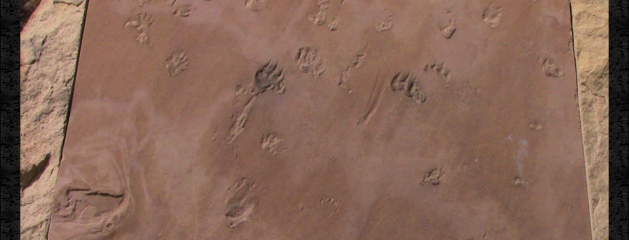“You are looking at parts of petrified flour sacks from the Blue Spring mill.’ Although not suitable to eat, these sacks of petrified flour give lots of ‘food for thought”. “It is commonly believed that petrification is a process taking millions of years … not true! Under ideal conditions petrification can take place in as few as three weeks.” Read more here: https://creation.com/petrified-flour
Read MoreC-14 All Throughout the Geologic Column!!
C-14 has been found all throughout the geologic column!! To follow-up from Yesterday’s post, since C-14 shouldn’t last more than 100,000 years, evolutionists find it pointless to C-14 date items thought to be millions of years old. And to be fair, it would be pointless if their assumptions were true, but the evidence points to the fact that these items are not millions of years old. There are many examples of research that reports that C-14 has been found in: -“70 samples...
Read MoreNo Transitions for New Creatures!
The experts say there are no transitions for new creatures! “The history of most fossil species includes two features particularly inconsistent with gradualism: 1). Stasis. Most species exhibit no directional change during their tenure on earth. They appear in the fossil record looking much the same as when they disappear;…” “… Morphological change is usually limited and directionless. 2). Sudden Appearance. In any local area, a species does not arise gradually by...
Read MoreTracks up to the fossils!

“Animal tracks almost always precede body fossils in the fossil record, as paleontologist Dr Marcus Ross explains (see Reading evolution into the Scriptures and Is Genesis History?): “This is a pattern we see in several different groups, where their footprints are first, and their body parts are later. For the trilobites, for the amphibians, for the dinosaurs—the first time I find evidence of them in the fossil record, it’s from trackways, not from hard parts. From...
Read MoreDino Puberty Blues – Excerpt
Nanotyrannus was a bit like a Tyrannosaurus rex, except it had 17 teeth in its lower jaw, while a T. rex had 12 lower jaw teeth and a less elongated skull. However, now it seems that Nanotyrannus should never have been identified as a separate species at all. Leading dinosaur paleontologist Dr Jack Horner of Montana State University says that Nanotyrannus was in fact a juvenile T. rex, whose skull changed dramatically as it matured. The transition to adulthood also...
Read MoreDragon Fossil?
Dracorex – The dinosaur that looks like a dragon For many years creationists have been making connections between dinosaurs and dragons. However, dragons are often portrayed as having fanciful features like wings, bizarre horns and claws, and the ability to breathe fire. Enter the Dragon Say hello to Dracorex hogwartsia. It’s more eye-catching than most dinosaurs because it’s what most people imagine dragons looking like. Yet this is a real animal! The nearly complete...
Read More

